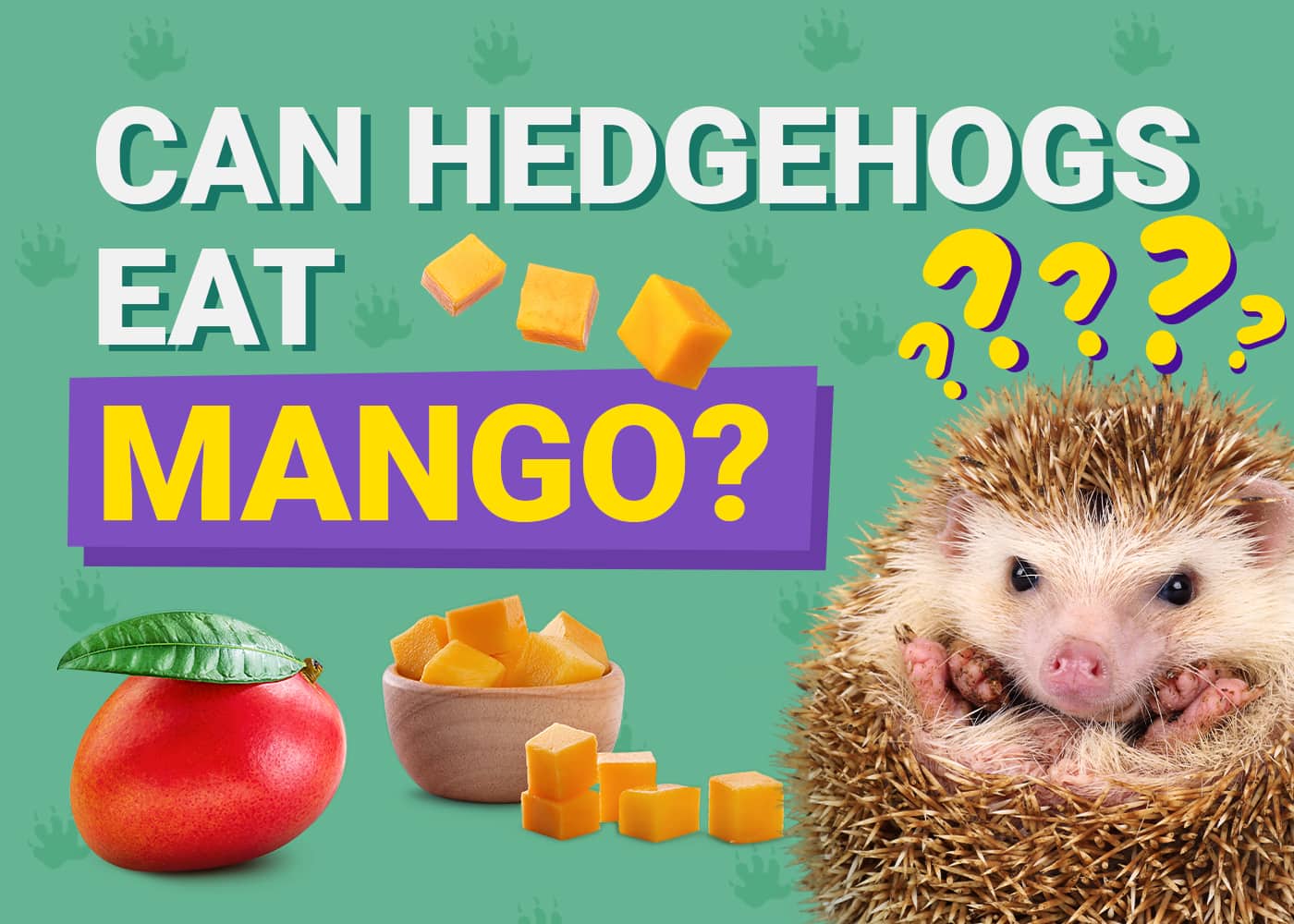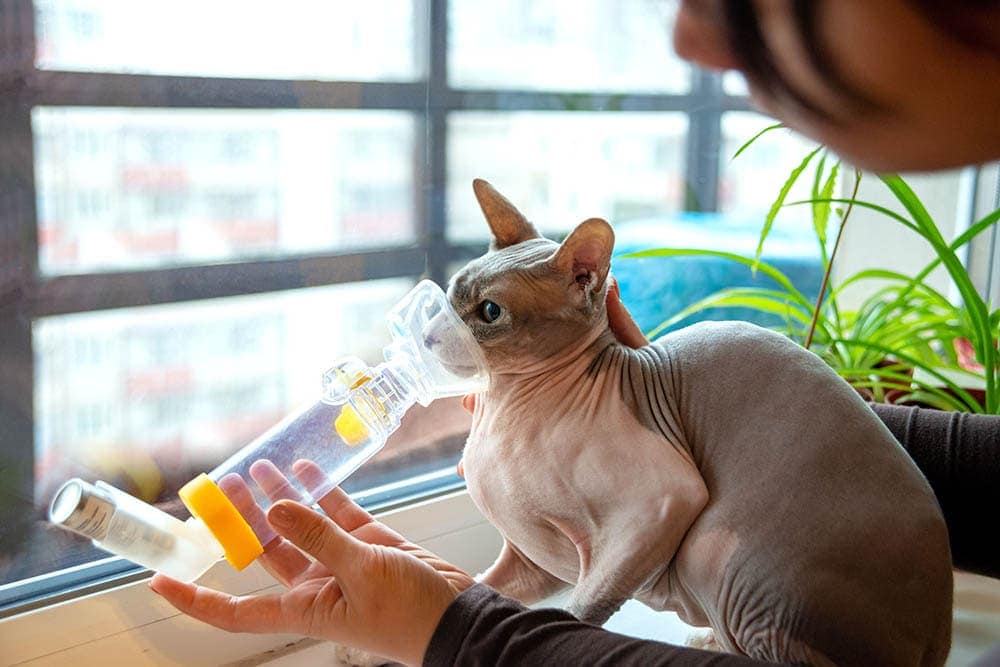VET APPROVED

The information is current and up-to-date in accordance with the latest veterinarian research.
Learn more »Click to Skip Ahead
While a certain famous video game hedgehog might spend his time zooming around imaginary worlds, not worrying about eating, real-life pet hedgehogs have no such luck. To keep any pet healthy, including a hedgehog, you need to know how to feed them properly and that includes knowing what foods they can and can’t eat. Take the sweet and juicy mango fruit, for example, can hedgehogs enjoy it?
Yes, mango is not toxic for hedgehogs but it is not considered healthy for them due to the high sugar content. We’ll talk about how mango fits into a balanced diet for your hedgehog as well as the health concerns that come along with feeding your pet the wrong food.

Mango and the Hedgehog Diet
In the wild, hedgehogs, despite having the physiology of an insectivore, tend to have somewhat of an omnivore diet. Their primary food source is insects and other small invertebrates like millipedes and earthworms. They also occasionally eat plant material, including fruits and vegetables scavenged from gardens and fields.
Looking at what wild hedgehogs eat, we see that fruits such as mangoes make up only a small part of the natural diet of these spiky animals. One might think that to keep pet hedgehogs healthy, they should be fed a similar diet to what they would find in the wild. However, this isn’t necessarily true, because a wild animal’s sole purpose is to grow and reproduce as often and as quickly as possible. A pet’s life is obviously a completely different form of existence.
Nonetheless, mangoes are just one of several different fruits that your hedgehog may enjoy occasionally, but stick with fresh rather than dried if you insist on offering it to them.
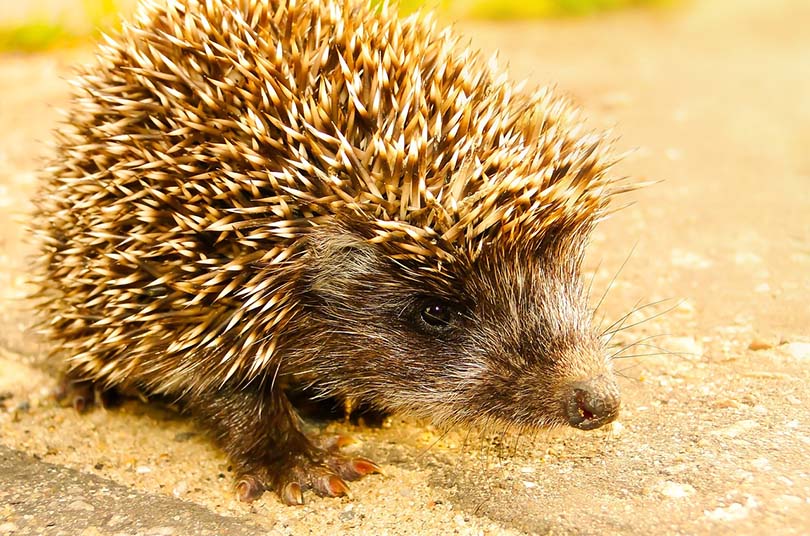
Moderation Only: The Trouble With Too Much Mango
All fruits, not just mango, are naturally high in sugar, which is what makes them taste so sweet and delicious. Too much sugar is unhealthy for hedgehogs, just like it is for humans, leading to health concerns including obesity.
Even hedgehogs who are fed all the right foods are prone to becoming overweight if the number of calories consumed is not carefully controlled. High-sugar foods like fruit have a lot of calories which, in the hedgehog’s case, don’t provide a lot of nutritional benefits compared to their main food source, insects.
When calories are precious, you want your hedgehog to get the most nutrition possible from each one, which is why mango–and other fruits, should be fed in moderation only. In addition, the dentition of a hedgehog makes “moist” foods such as mango (and other fruit) very difficult for them to swallow easily; their mouth anatomy is made specifically for consuming dry foods (such as the exoskeletons of insects, which they need for fiber).
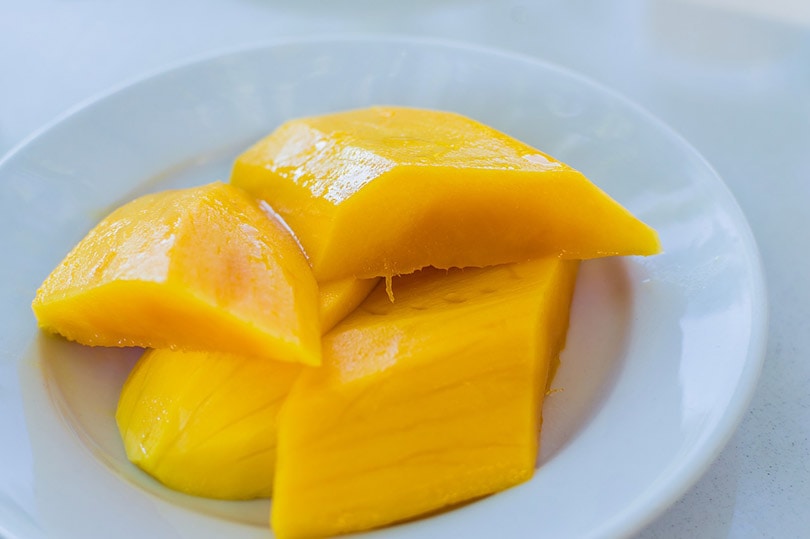

Hedgehog Feeding: The Basics
Now that we know how mango fits into a hedgehog’s meal plan, let’s learn a little more about what their overall diet should look like.
Pet hedgehogs should eat primarily a commercial hedgehog diet, formulated to their specific nutritional needs as a species. They can also be offered small amounts of earthworms or gut-loaded insects for added protein. These should not be wild-caught.
Safe fruits and vegetables should make up the last portion of your hedgehog’s diet.
- Leafy greens, such as spinach and kale
- Peas
- Bananas
- Apples
- Berries
Every hedgehog is an individual so as far as portioning goes, you should definitely check with your veterinarian.
If their diet is properly balanced, hedgehogs shouldn’t need additional vitamin or mineral supplements. Your veterinarian can help you make sure all is well with your hedgehog’s diet, plus tell you what to do if you’re worried they might be gaining too much weight.
In the wild, hedgehogs eat mainly at night. Feeding your pet hedgehog in the evening will allow them to follow their natural eating behavior. Make sure your hedgehog has fresh water available at all times, either in a shallow bowl or a bottle.
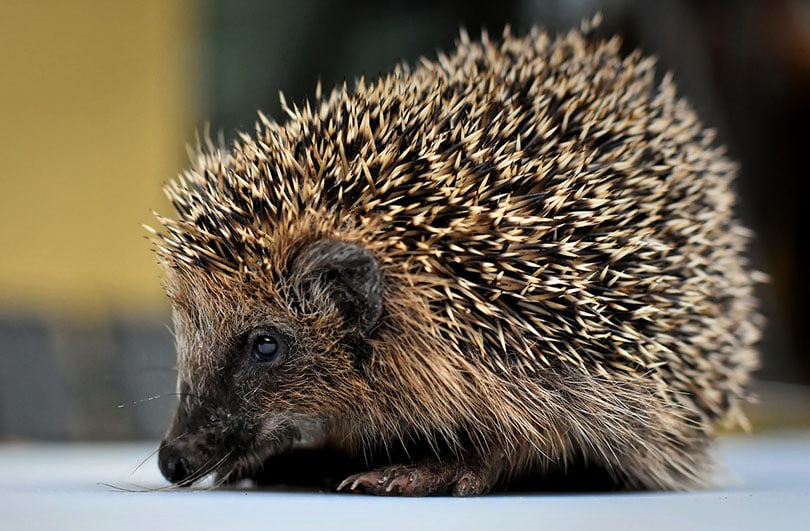
Foods Your Hedgehog Shouldn’t Eat
Mango may be safe to offer your hedgehog, but there are some foods you should avoid. First, never feed your hedgehog any processed human food without asking your veterinarian first.
Avocado is toxic to hedgehogs and should not be fed. When feeding fruit, make sure to remove the pits and seeds, which are often toxic. Other potentially poisonous foods include garlic, chocolate, and raisins.
Try to avoid vegetables with poor nutritional value, like celery and lettuce, keeping in mind you want the most nutrition per calorie ideally.
Hard foods like nuts or seeds shouldn’t be fed because they might get stuck to the top of your hedgehog’s mouth. Also, don’t feed raw meat or eggs, and don’t let your hedgehog drink milk, which they can’t digest.

Conclusion
Hedgehogs are adorable, low-maintenance, and unique pets. They may not be the easiest to cuddle, but hedgehogs are friendly and easy to handle with the right socialization. Feeding your hedgehog is pretty simple and you can rest assured that mango is one of the foods that are safe to feed. Just remember to feed it fresh and in small amounts to help make sure your prickly pet stays at a healthy weight.
See Also:
